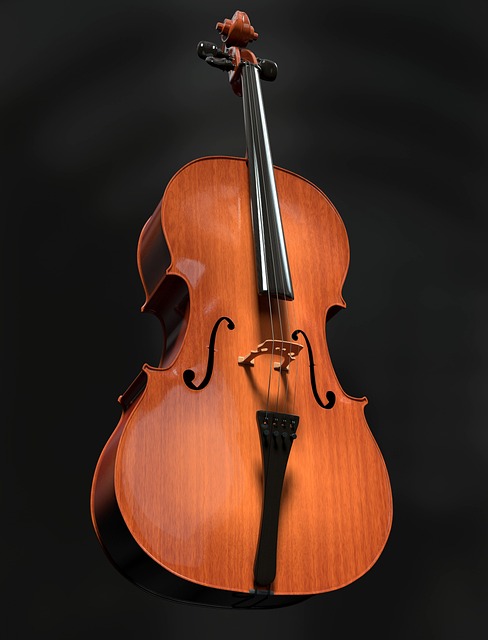https://aiode.com/product are revolutionizing the creative landscape, offering musicians and producers unprecedented capabilities for music production. These tools, powered by advanced algorithms, enable melody generation, sound enhancement, personalized recommendations, and efficient workflows. They learn from vast datasets to mimic diverse styles, generate novel sounds, streamline mixing/mastering, and suggest compositions tailored to individual artists' preferences. AI fosters collaboration between humans and machines, enhancing productivity, exploring sonic territories, and democratizing music creation globally. By leveraging these tools, creators can push artistic boundaries while achieving professional-grade results.
“Welcome to the future of music creation! This blog is your ultimate guide to harnessing the power of Artificial Intelligence (AI) music tools, revolutionizing the way musicians and producers craft their art. From composition to mastering, AI is transforming music production. In this comprehensive journey, we’ll explore how these innovative tools unlock creative possibilities, enhance sound design, and foster collaboration. Discover the potential of AI music tools and stay ahead in the evolving music industry.”
- The Rise of AI in Music Production: Unlocking Creative Possibilities
- Understanding AI Music Tools: A Beginner's Guide
- Enhancing Sound Design: AI's Role in Synthesizer and Sampling
- Composition and Arrangement: How AI Assists Musicians
- Mixing and Mastering with AI: Achieving Professional Results
- The Future of Music Industry: AI's Impact on Creativity and Collaboration
The Rise of AI in Music Production: Unlocking Creative Possibilities
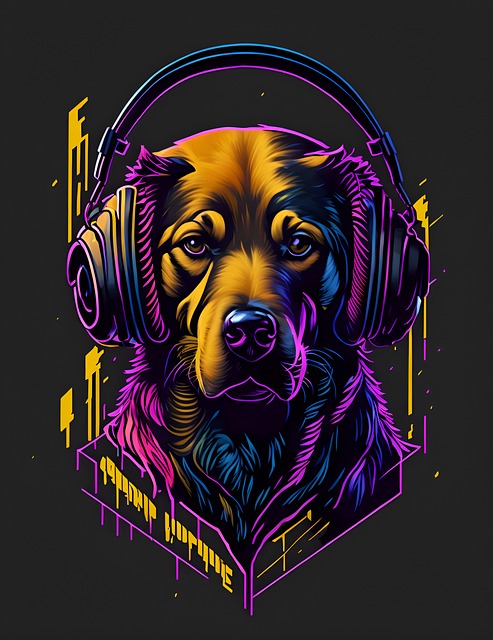
The integration of AI in music production has sparked a revolution, opening up unprecedented creative avenues for musicians and producers worldwide. With advancements in artificial intelligence, creating and collaborating on music has become more accessible and exciting than ever before. AI music tools are no longer a concept from science fiction; they are here, transforming the way we make and appreciate music. These innovative technologies offer an array of capabilities, from generating melodies and harmonies to enhancing sound quality and providing personalized recommendations for artists’ creative processes.
Musicians can now leverage AI to experiment with new styles, explore uncharted sonic territories, and streamline their workflow. By employing these advanced tools, producers can achieve a level of efficiency and versatility previously unimaginable. The rise of AI in music production encourages collaboration between humans and machines, fostering an environment where creativity knows no bounds. As AI continues to evolve, its impact on the industry will only grow, shaping the future of music and providing endless possibilities for artistic expression.
Understanding AI Music Tools: A Beginner's Guide
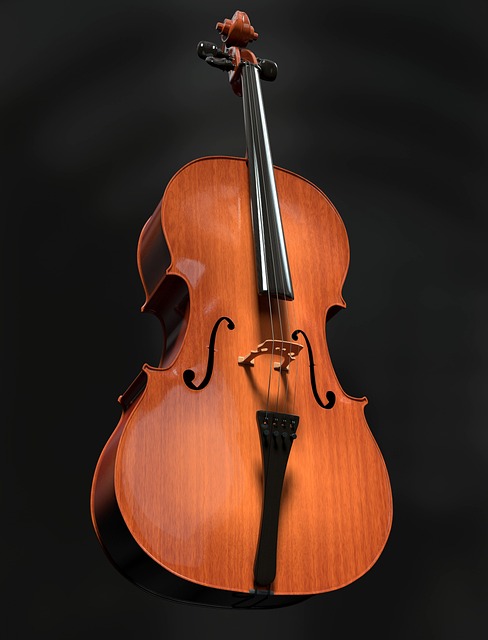
AI music tools are transforming the way musicians create and produce their art, offering unprecedented possibilities for innovation and experimentation. These tools leverage advanced algorithms and machine learning to generate, manipulate, and enhance musical content, from composing entire tracks to creating unique sound effects and vocal harmonies. For beginners entering this exciting realm, understanding the capabilities and limitations of AI music tools is key.
At their core, AI music tools learn from vast datasets of existing music, allowing them to mimic various styles and genres. They can assist in tasks like generating chord progressions, suggesting melodies, or even composing entire songs based on user input. However, it’s important to note that while these tools can spark creativity, they often require human touch-ups for refinement and polish. The best approach is to view AI music tools as collaborative partners, leveraging their strengths to accelerate the creative process while preserving the artist’s unique vision.
Enhancing Sound Design: AI's Role in Synthesizer and Sampling
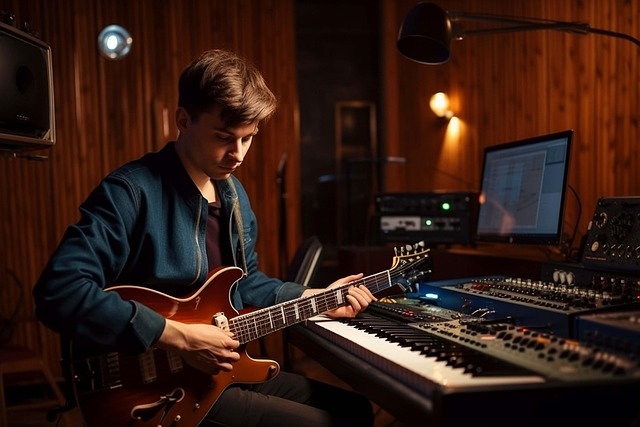
AI music tools have revolutionized sound design, offering musicians and producers an unprecedented level of creativity in synthesizer and sampling. These advanced technologies can generate complex sounds and textures with just a few inputs, enabling artists to explore new sonic territories. AI algorithms analyze vast libraries of existing samples and synthesised sounds, learning patterns and structures to create unique and captivating audio landscapes.
By leveraging AI, musicians can transform their creative process. For instance, AI can help in designing intricate soundscapes, from rich ambient textures to dynamic lead synth lines. It also aids in sampling by automatically chopping, pitching, and manipulating samples to fit desired musical contexts. This not only saves time but also opens doors for innovative experimentation, fostering a new era of musical expression driven by cutting-edge ai music tools.
Composition and Arrangement: How AI Assists Musicians
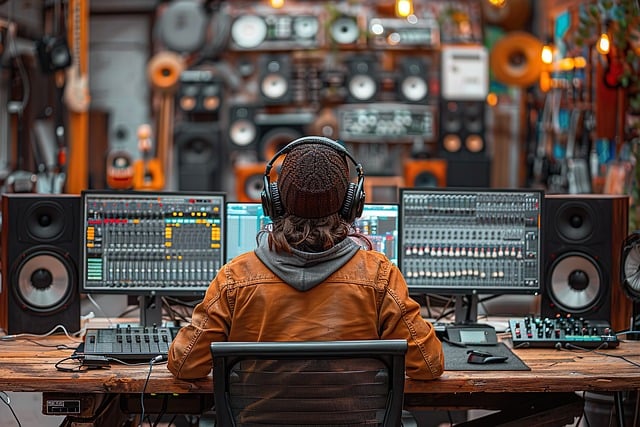
AI music tools are transforming the way musicians approach composition and arrangement, offering innovative ways to create and refine their work. These advanced algorithms can analyze a musician’s style, preferences, and even emotional intent, providing suggestions for melodic sequences, chord progressions, and rhythmic patterns that complement their unique sound. By leveraging AI, composers and arrangers can expedite their creative process, explore new sonic territories, and push the boundaries of musical expression.
One of the most significant advantages is the ability to generate custom compositions and arrangements at scale. AI models can learn from vast datasets of existing music, enabling them to produce original pieces that align with specific genres, moods, or even individual artist preferences. This not only saves musicians time but also opens doors to experimental collaborations, where AI acts as a co-creator, fostering a dynamic interplay between human intuition and machine learning capabilities.
Mixing and Mastering with AI: Achieving Professional Results

Mixing and mastering are critical stages in music production, where AI music tools are making significant strides. These advanced algorithms can analyze and enhance every aspect of an audio track, from balancing instruments to adding the final polish. With just a few clicks, musicians can achieve professional-grade mixes and masters, saving time and effort while ensuring their music sounds its best.
AI offers precise control over dynamic range, frequency response, and stereo imaging, enabling producers to fine-tune every detail. This technology is especially beneficial for independent artists and small production teams who may not have access to expensive studio equipment or skilled engineers. By leveraging AI music tools, they can compete with larger productions by creating high-quality recordings that match industry standards.
The Future of Music Industry: AI's Impact on Creativity and Collaboration

The music industry is on the cusp of a transformative era, where artificial intelligence (AI) music tools are reshaping the creative landscape. AI’s ability to analyze vast datasets and generate unique musical content has opened up exciting possibilities for musicians and producers. These cutting-edge tools can assist in composing melodies, generating harmonies, and even creating entire songs, fostering collaboration between humans and machines. The future holds immense potential for AI to enhance creativity, streamline production processes, and democratize music creation, allowing artists to explore uncharted sonic territories.
By leveraging AI music tools, musicians can tap into a wealth of inspiration and efficiency. These technologies enable collaborative efforts that transcend geographical boundaries, as artists from around the globe can now work together in real-time, sharing ideas and building upon each other’s creations. The impact of AI on music production promises to revolutionize how we understand and appreciate artistic expression, blurring the lines between human intuition and machine precision.
In conclusion, the integration of AI music tools has ushered in a new era of creativity and collaboration within the music industry. As demonstrated throughout this blog, these tools offer musicians and producers an extensive array of capabilities, from sound design and composition to mixing and mastering. By leveraging AI, artists can unlock unprecedented creative possibilities, streamline workflows, and achieve professional-grade results. The future of music production looks bright, with AI continuing to shape and enhance the artistic process, opening doors for innovative expressions and captivating musical experiences.
